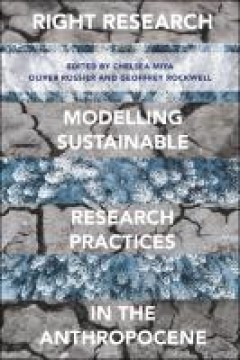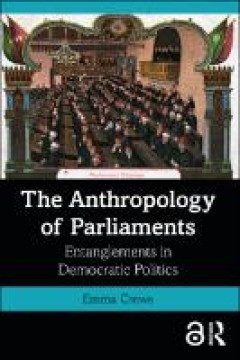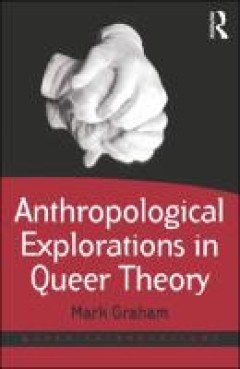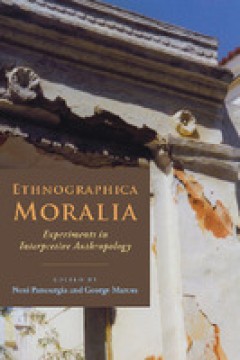Filter by
# Debug Box
/var/www/htdocs/pustaka-digital/lib/SearchEngine/SearchBiblioEngine.php:688 "Search Engine Debug 🔎 🪲"
Engine Type ⚙️: "SLiMS\SearchEngine\SearchBiblioEngine"
SQL ⚙️: array:2 [ "count" => "select count(sb.biblio_id) from search_biblio as sb where sb.opac_hide=0 and ((match (sb.topic) against (:subject in boolean mode)))" "query" => "select sb.biblio_id, sb.title, sb.author, sb.topic, sb.image, sb.isbn_issn, sb.publisher, sb.publish_place, sb.publish_year, sb.labels, sb.input_date, sb.edition, sb.collation, sb.series_title, sb.call_number from search_biblio as sb where sb.opac_hide=0 and ((match (sb.topic) against (:subject in boolean mode))) order by sb.last_update desc limit 10 offset 50" ]
Bind Value ⚒️: array:1 [ ":subject" => "'+\"Anthropology\"'" ]

Right research : modelling sustainable research practices in the anthropocene
"Educational institutions play an instrumental role in social and political change, and are responsible for the environmental and social ethics of their institutional practices. The essays in this volume critically examine scholarly research practices in the age of the Anthropocene, and ask what accountability educators and researchers have in ‘righting’ their relationship to the environmen…
- Edition
- -
- ISBN/ISSN
- 9781783749638
- Collation
- xxv, 558 p. : ill.
- Series Title
- -
- Call Number
- 304.2 MIY r

ANTHROPOLOGICAL PERSPECTIVES ON ENVIRONMENTAL COMMUNICATION
In the continuous search for sustainability, the exchange of diverse perspectives, assumptions, and values is indispensable to environmental protection. Through anthropological and ethnographic analyses, this collection addresses how interests, values, and ideologies affect dialogue and sustainability work. Drawing on studies from three continents – Europe, North America, and South America �…
- Edition
- -
- ISBN/ISSN
- 9783030780395
- Collation
- xxi, 264 p. : ill.
- Series Title
- -
- Call Number
- 304.2014 SJO a

Claiming home : migration biographies and everyday lives of queer migrant wom…
Through biographical narratives, Claiming Home traces how queer migrant women living in Switzerland navigate often contradictory perspectives on sexuality, gender, and nation. Situated between heteronormative and racialized stereotypes of migrant women on the one hand, and the implicitly white figure of the lesbian on the other, queer migrant women are often rendered ›impossible subjects.‹ …
- Edition
- -
- ISBN/ISSN
- 9783837656916
- Collation
- 446 p.
- Series Title
- -
- Call Number
- 300 BUC c

Words in space and time : a historical atlas of language politics in modern C…
With forty-two extensively annotated maps, this atlas offers novel insights into the history and mechanics of how Central Europe’s languages have been made, unmade, and deployed for political action. The innovative combination of linguistics, history, and cartography makes a wealth of hard-to-reach knowledge readily available to both specialist and general readers. It combines information on …
- Edition
- -
- ISBN/ISSN
- 9789633864180
- Collation
- xvii, 289 p. : ill.
- Series Title
- -
- Call Number
- 306.44943 KAM w

Ageing with Smartphones in Urban Italy : Care and community in Milan and beyond
‘Who am I at this (st)age? Where am I and where should I be, and how and where should I live?’ These questions, which individuals ask themselves throughout their lives, are among the central themes of this book, which presents an anthropological account of the everyday experiences of age and ageing in an inner-city neighbourhood in Milan, and in places and spaces beyond.Ageing with Smartpho…
- Edition
- -
- ISBN/ISSN
- 9781787359710
- Collation
- 188p. ; ill.
- Series Title
- Ageing with Smartphones
- Call Number
- 305.260945211 SHI a

Xiipúktan (first of all): three views of the origins of the Quechan people
The Quechan people live along the lower part of the Colorado River in the United States. According to tradition, the Quechan and other Yuman people were created at the beginning of time, and their Creation myth explains how they came into existence, the origin of their environment, and the significance of their oldest traditions. The Creation myth forms the backdrop against which much of the tr…
- Edition
- -
- ISBN/ISSN
- 9781909254411
- Collation
- 210 p. ; 24 cm
- Series Title
- -
- Call Number
- 973.0497 BRY x

The anthropology of parliaments: entanglements in democratic politics
The Anthropology of Parliaments offers a fresh, comparative approach to analysing parliaments and democratic politics, drawing together rare ethnographic work by anthropologists and politics scholars from around the world. Crewe’s insights deepen our understanding of the complexity of political institutions. She reveals how elected politicians navigate relationships by forging alliances and t…
- Edition
- -
- ISBN/ISSN
- 9781003084488
- Collation
- 242 p.: black and white, ill.
- Series Title
- -
- Call Number
- 328.3 CRE t

Anthropological explorations in queer theory
Anthropological Explorations in Queer Theory offers a wide ranging fusion of queer theory with anthropological theory, shifting away from the discussion of gender categories and identities that have often constituted a central concern of queer theory and instead exploring the queer elements of contexts in which they are not normally apparent. Engaging with a number of apparently 'non-sexual' to…
- Edition
- -
- ISBN/ISSN
- 9781315567280
- Collation
- 182 p.: black and white, ill.
- Series Title
- Queer Interventions
- Call Number
- 306.7601 GRA a

Cold war anthropology
In a wide-ranging and in-depth study of the recent history of anthropology, David Price offers a provocative account of the ways anthropology has been influenced by U.S. imperial projects around the world, and by CIA funding in particular. DUAL USE ANTHROPOLOGY is the third in Price’s trilogy on the history of the discipline of anthropology and its tangled relationship with the American milit…
- Edition
- -
- ISBN/ISSN
- 9780822374381
- Collation
- 472 p.: black and white, ill.
- Series Title
- -
- Call Number
- 301.09730904 PRI c

Ethnographica moralia: experiments in interpretive anthropology
Panourgia and Marcus bring together anthropologists working in various parts of the world (Greece, Bali, Taiwan, the United States) with classicists, historians, and scholars in cultural studies. The volume takes into account global realities such as 9/11 and the opening of the Cypriot Green Line and explores the different ways in which Geertz’s anthropology has shaped the pedagogy of their d…
- Edition
- -
- ISBN/ISSN
- 9780823228874
- Collation
- 291 p.
- Series Title
- -
- Call Number
- 301.01 PAN e
 Computer Science, Information & General Works
Computer Science, Information & General Works  Philosophy & Psychology
Philosophy & Psychology  Religion
Religion  Social Sciences
Social Sciences  Language
Language  Pure Science
Pure Science  Applied Sciences
Applied Sciences  Art & Recreation
Art & Recreation  Literature
Literature  History & Geography
History & Geography